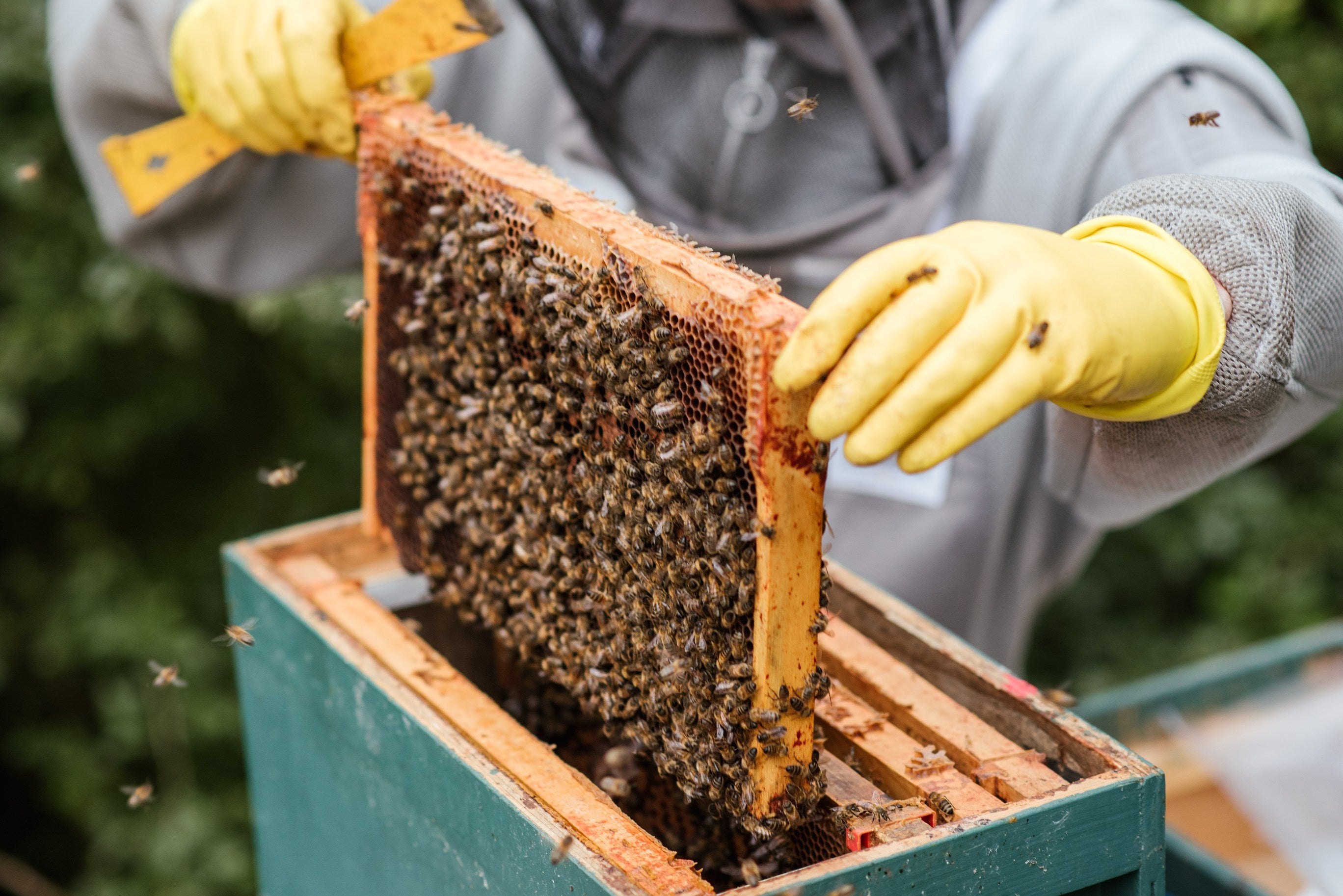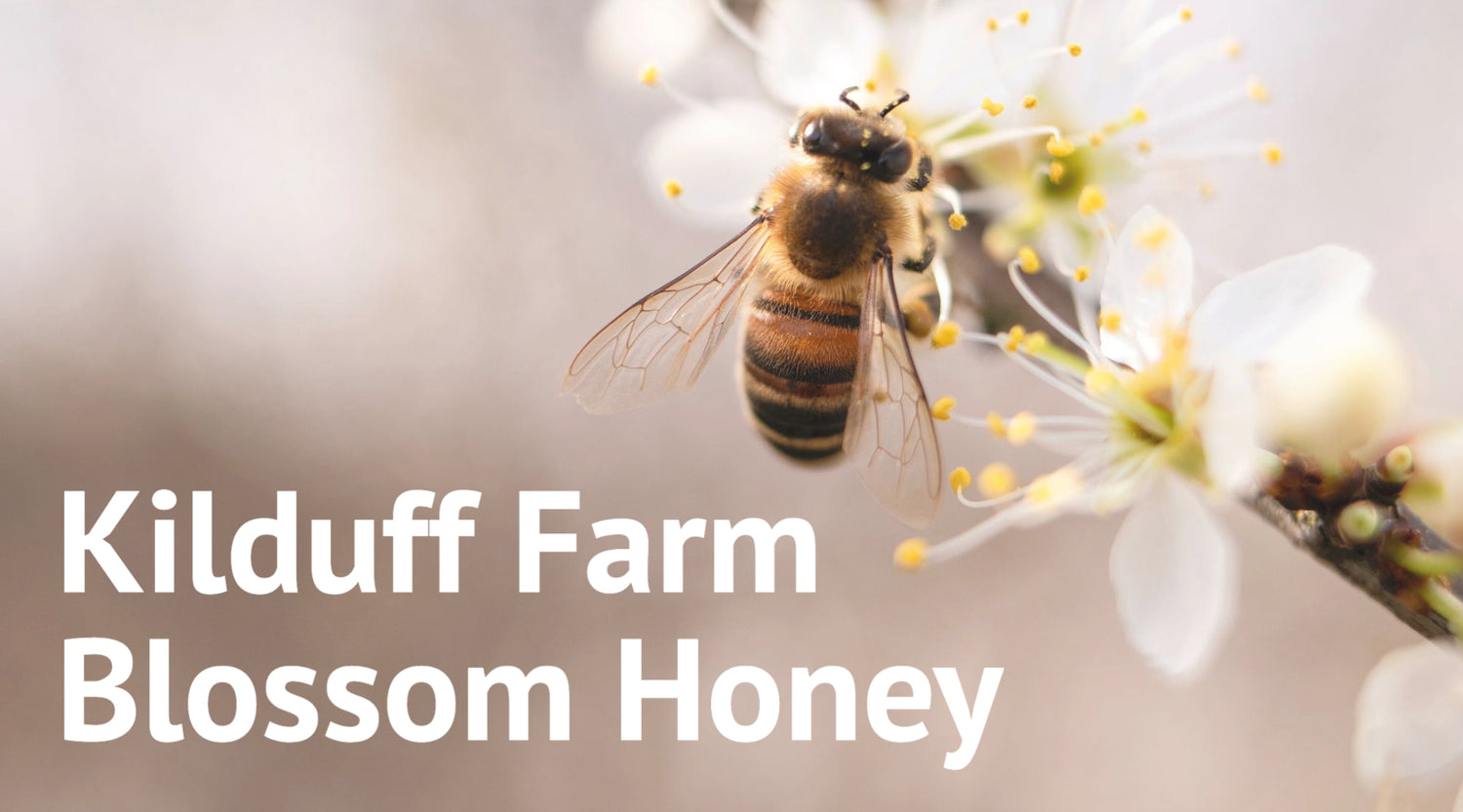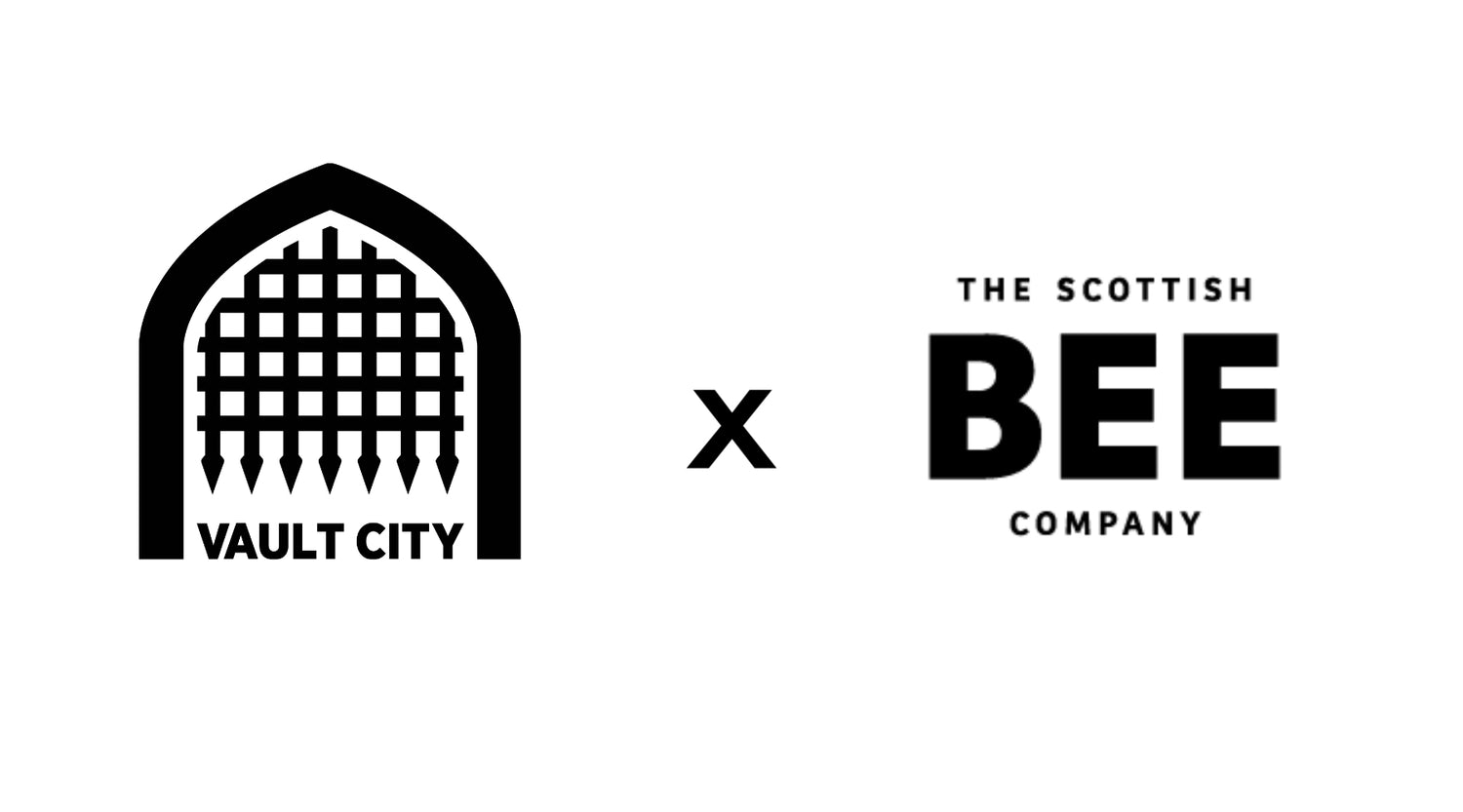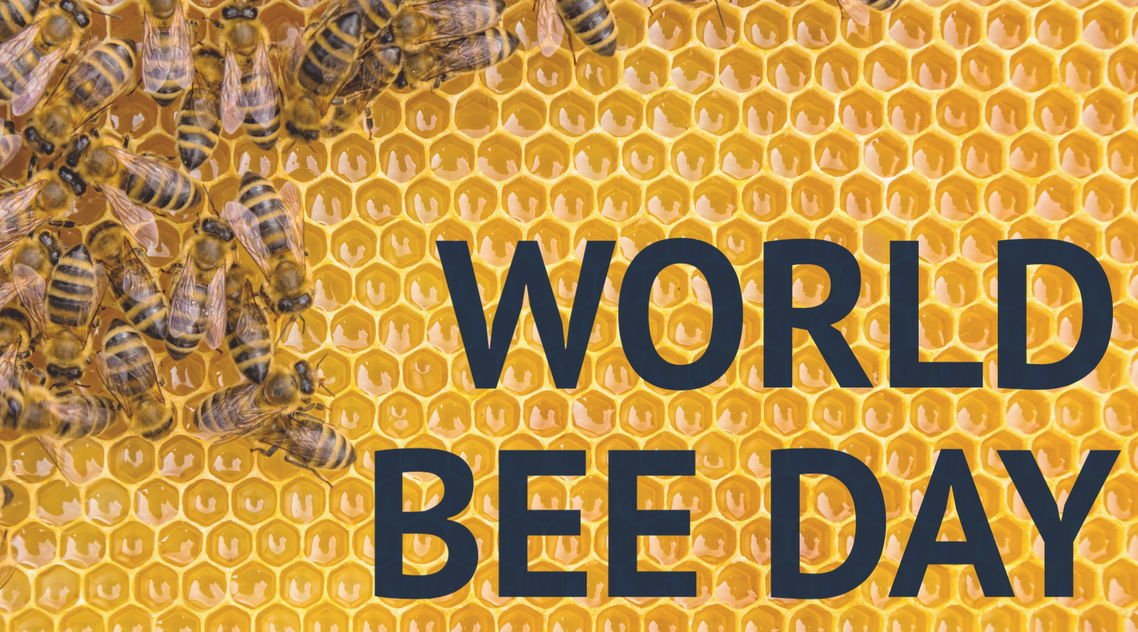As a beekeeper, a really common question I get asked is “but where do you get the honeybees from in the first place?”
It’s an important question because sadly honeybees don’t magically fly into an empty hive (well, not normally). I'll talk a little bit about how you can go about buying bees as well as some of the crucial considerations to make before going ahead with buying honeybees in the UK. With the support of the Scottish Bee Company, I’ve officially completed the first beekeeping apprenticeship in Scotland so I’m here to share my knowledge so far...
Before buying bees
Do a beekeeping course
Beekeeping can be a wonderful hobby and it is a joy to watch the honey bees flying in and out of your hive in the garden. That said, there is also a bit of work involved in beekeeping and ultimately that work is driven by an understanding of how and why honey bees do the things that they do. You want to work with your honey bees, not against them.
If you’ve seen someone keep bees on TV or have witnessed hives in real life and are tempted to get involved I would highly recommend doing a beginner course in beekeeping first.
Doing a course gives you a chance to understand some of the fundamentals to beekeeping as well as offering practical experience. Don’t buy honey bees before you’ve done some learning.
Get the kit
It’s also important to have all the kit you need. It’s equally as important to consider the beekeeping startup costs. A fully assembled hive can cost a few hundred pounds and that’s before you’ve put any bees in it.
You’ll also need:
- A suit
- A hive tool
- A smoker
However, if all goes well in your beekeeping endeavours you will inevitably need extra gear.


Sadly, as living creatures’ bees also suffer from pest and disease. Varroa can be a big problem for honeybees and another expense will be treating for this every autumn.
Why do you want to keep bees?
I think this is such an important question before purchasing bees. If your desire to keep bees is motivated by the hands-on joy that comes with learning and working with bees and producing some of your own honey at the end of that then that’s a good enough reason.
If your motivation is environmental, I would argue that a better way to support bees is to provide food. Many people think honey bees are endangered but in the grand scheme of things honey bees aren’t doing too badly. However other bee species (of which there are around 250 in the UK) are suffering and are in decline. This is due to several factors, one of which is a lack of forage. The single most important thing an individual can do to help the bee population is to plant bee-friendly spaces. Our sister charity ‘RePollinate’ aims to reverse the decline in the pollinator population. Find out how to help the declining bee population.
Overloading areas
It is well worth finding out how many beehives there are within 5 miles of your area. Overloading an area with honeybee colonies can cause problems for bees, the most significant being a lack of nectar and pollen. In populated cities like London, where hobbyist beekeeping is booming this problem has been well documented. This takes us back to the question of the motivation behind keeping bees. It is important to try and do it in a way that is sustainable and conscientious.
Where to buy honeybees
There are a few different options as to how to acquire honeybees. What method you should go for probably depends on your level of experience.
Beginner Beekeepers
- Do course at your local beekeeper’s association. Not only would this provide you with all the fundamentals of beekeeping, but it would also provide a great opportunity to get your hands on some honey bees.
- Local associations quite often sell nucleus colonies (a small colony of bees). Do a course over the summer months and at the end buy a small nucleus that you can overwinter. The benefit of this is that in the spring you will have a small colony to manage with the knowledge gained the previous year. This can be much less intimidating than a full-sized colony.
Experienced Beekeepers
- For the more experienced beekeeper, honeybees can be bought as a package. This option definitely involves a knowledge of bees as a queen would need to be introduced.
- Another option is to buy an already housed full size colony. This could be because a local beekeeper is selling up.







1 comment
I have buckfast bees and carniolan bees. and I intend to change to the native black bee as soon as possible